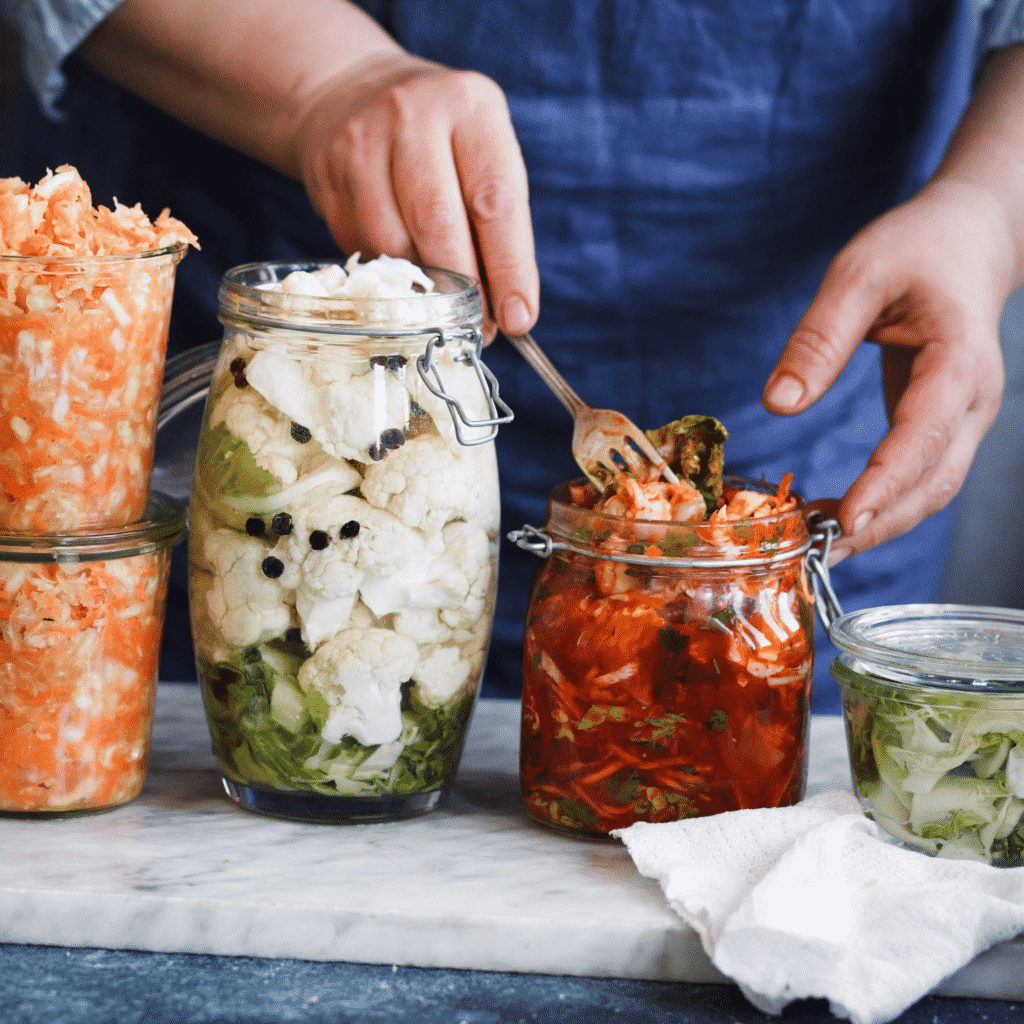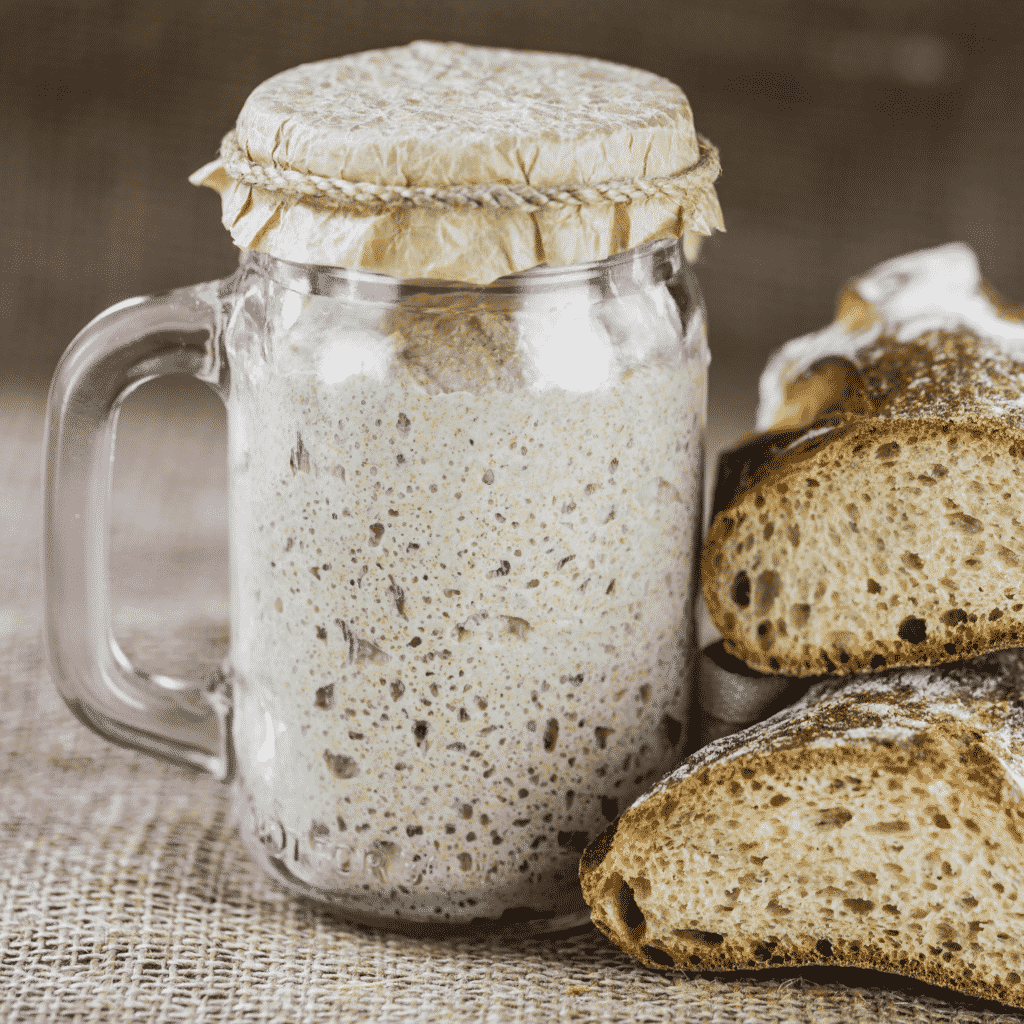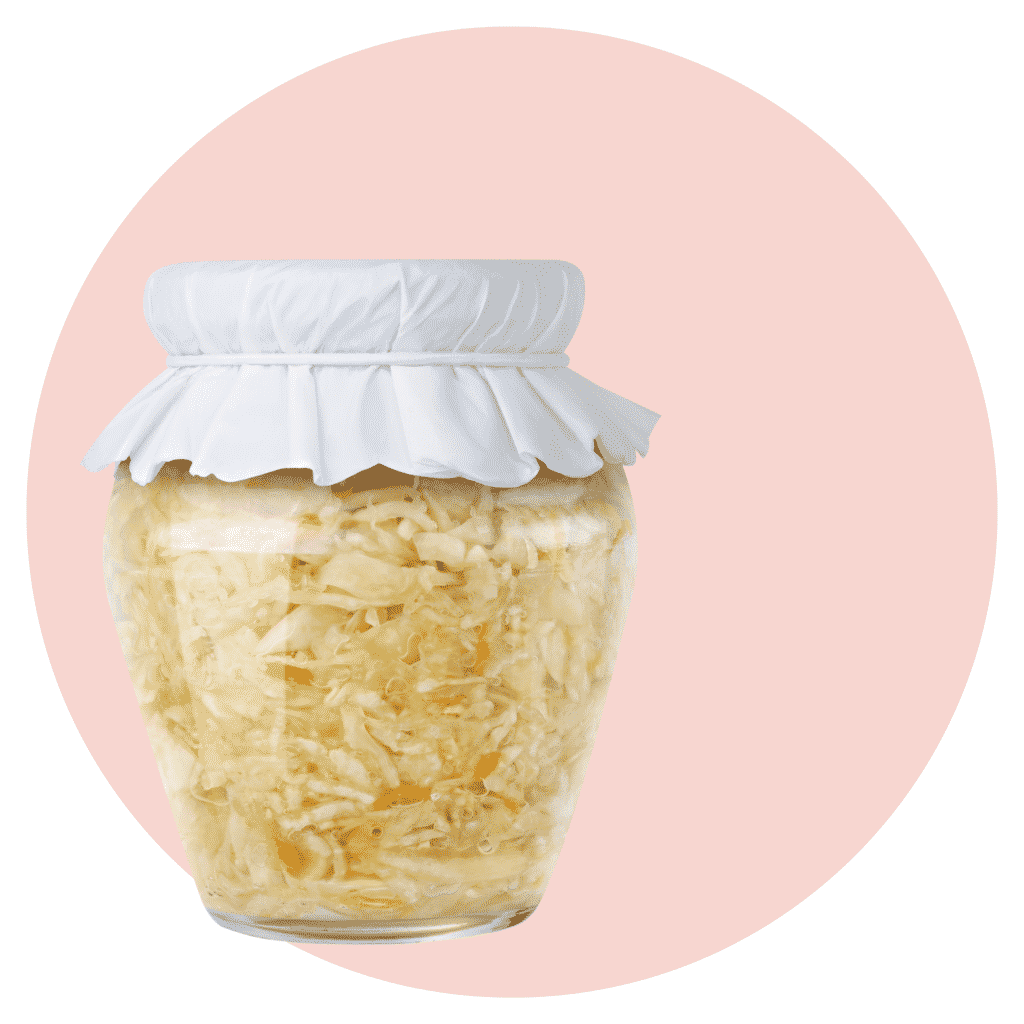fermented foods
Worth the hype or just a hip new trend? We explore the history of fermentation and highlight the key developments shown from a research study published in July 2020.
You could say fermented foods have become somewhat of a trend but they’ve been around since Neolithic times. Making your own is like having a little pet and they taste great but what’s the science behind the hype?
We know diet can have a huge impact on out gut microbes (diversity and fibre being key players for ‘team gut’) but what about fermented food? What role do ferments have in our diets? apart from tasting amazing!

Why ferment food?
Historically, food was fermented to preserve it for consumption later on. Due to the bacteria and yeasts, fermented food is also tasty and may, in some ferments, increase the food’s nutritional value. When bacteria and yeasts ferment food, they produce something called metabolites. These metabolites include lactic acid, vitamins and exopolysaccharides (sugar molecules) and may support health.
Loadsa different foods can be fermented, such as dairy, fish (yes really!), vegetables, cereals and fruits. The key bacteria found in fermented foods include Lactococcus, Lactobacillus, Streptococcus and Leuconostoc but yeasts and other bacteria also feature depending on the ferment.
The type, quantity and quality all depend on how the ferment is made (man-made versus homemade having very different qualities), how it’s stored and what it’s made from.
Does the consumption of fermented food change your gut microbes?
There are some studies looking at the affect of fermented food on the gut but not any in large cohorts (lots of people). Looking at longitudinal data*, researchers analysed 6,811 stool samples and 115 individuals from the American Gut Project were recruited for how often (or not) they ate fermented (plant-based) food.

What did the research show?
- Gut microbe diversity: Statistically significant differences were found between those who ate fermented foods and those who did not.
- Taxa (species): different taxa were found between the two groups
- Metabolome (small molecules from a biological sample, including products produced by gut microbes): more conjugated linoleic acid, thought to be beneficial to health, was found in those who ate fermented foods than those who did not.
This is just a snapshot of some of the interesting research (and largest) in the area of fermented foods.
Difficulties with research:
Why are fermented foods so hard to research? It comes down to a few key things:
- Funding – research is very expensive (and carries bias if funded by those that may benefit).
- Unstable – we just don’t know how fermented foods will react on the day and it depends on how alive they are, temperature and what food is available. Shop bought versus homemade behave in different ways.
- The unknown – we are still very early on in our understanding of our own microbes, let alone the ones we ingest.
- Longitudinal studies – results may suggest a causal relationship between fermented foods and microbes. But how much is needed to illicit a response and what types of fermented foods work the best? The jury is still out on that one.
What’s next?
Studies with more people over a longer period of time looking at different types of fermented food are next on the agenda.
There’s another study that looked at 19 human studies to understand what effect fermented foods had on gut microbes – it’s currently embargoed until 2021 but we can’t wait to see what researchers found.
Don’t forget to sign up to our mailing list to be the first to know. Just head to the ‘want to know more’ bubble at the bottom of the page.

* A longitudinal study means that the participants were observed over a period of time, rather than given an intervention, the benefits being that as it looks at participants over time, rather than a moment in time and changes can be seen in the individuals and in groups.
References
Bourdichon, F., Casaregola, S., Farrokh, C., Frisvad, J. C., Gerds, M. L., Hammes, W. P., Harnett, J., Huys, G., Laulund, S., Ouwehand, A., Powell, I. B., Prajapati, J. B., Seto, Y., Ter Schure, E., Van Boven, A., Vankerckhoven, V., Zgoda, A., Tuijtelaars, S., & Hansen, E. B. (2012). Food fermentations: microorganisms with technological beneficial use. International journal of food microbiology, 154(3), 87–97. https://doi.org/10.1016/j.ijfoodmicro.2011.12.030
Marco ML, Heeney D, Binda S, Cifelli CJ, Cotter PD, Foligné B, Gänzle M, Kort R, Pasin G, Pihlanto A, Smid EJ, Hutkins R. 2017. Health benefits of fermented foods: microbiota and beyond. Curr Opin Biotechnol 44:94–102. doi:10.1016/j.copbio.2016.11.010.
Taylor, B. C., Lejzerowicz, F., Poirel, M., Shaffer, J. P., Jiang, L., Aksenov, A., Litwin, N., Humphrey, G., Martino, C., Miller-Montgomery, S., Dorrestein, P. C., Veiga, P., Song, S. J., McDonald, D., Derrien, M., & Knight, R. (2020). Consumption of Fermented Foods Is Associated with Systematic Differences in the Gut Microbiome and Metabolome. mSystems, 5(2), e00901-19. https://doi.org/10.1128/mSystems.00901-19
Stiemsma, L. T., Nakamura, R. E., Nguyen, J. G., & Michels, K. B. (2020). Does Consumption of Fermented Foods Modify the Human Gut Microbiota?. The Journal of nutrition, 150(7), 1680–1692. https://doi.org/10.1093/jn/nxaa077
